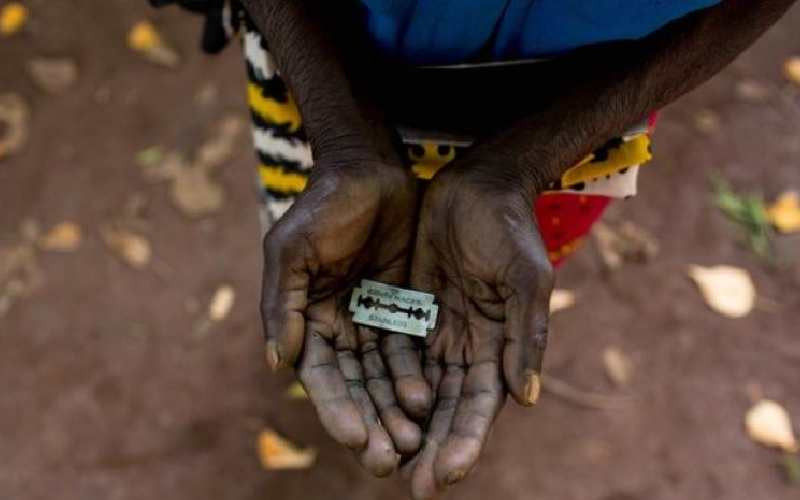
The world marked International Youth Day on August 12 under the theme 'Intergenerational solidarity: Creating a world for all ages'. The theme offers the youth a great opportunity to continue the push towards ending harmful practices.
Rooted in gender norms and passed on from generation to generation, harmful practices affect girls and women the most in many parts of the world. These practices are assumed to be in the best interest of the girl or family, including Female Genital Mutilation/Cutting (FGM/C), child marriages, virginity testing, son preference, and breast ironing among others.
All these practices violate human rights and have life-long consequences on the health and mental well-being of girls and women.
Nearly 363 million young people live in Africa, with projections indicating that the figure will double by 2050. Equally, Kenya is a youthful nation with 75 per cent of its population falling below the age of 35. Young people, therefore, must have the opportunity to lead change within their own communities.
In Kenya, a signatory to various international treaties including the Convention on the Rights of Children (CRC), the government and Civil Society Organisations must continue to seek ways to engage and create an enabling environment for youths to break all these social and gender norms. Statistics indicate that over 200 million girls and women globally have undergone FGM/C. An additional 68 million could undergo this practice by 2025 if it is not stopped.
The prevalence of FGM/C in Kenya varies greatly among the 47 counties. In some counties, such as Mandera, Wajir, Garissa, Marsabit, and Nyamira, the prevalence is very high (more than 90 per cent). In other counties, the prevalence is very low (less than 2 per cent), for example in Siaya, Kisumu, Bungoma, and Kakamega. FGM/C in Kenya continues to be carried out predominantly by traditional practitioners (83.3 per cent). Medical professionals carried out 14.8 per cent of the FGM/C cases that were reported in 2014.
It is also critical to note that cross-border FGM/C continues to hamper efforts towards the abandonment of FGM/C in a bid to escape the law. For example, Kenya faces cross-border FGM/C among practicing communities in Uganda, Tanzania, Somalia, and Sudan. Senegal is also surrounded by Gambia, Guinea Bissau, Guinea and Mali, all of which have a high prevalence FGM/C rate.
Cross-border FGM/C is a major challenge as practicing communities use excuses such as weddings, vacations, traditional ceremonies, and other events to cover the fact that girls are being taken across borders to undergo the cut.
Youths are critical thinkers and question ways of doing things. They are culture shapers and policy influencers, open to new ideas from around the world. Youths across the world have chosen a different trajectory and are keen to receive and understand new information.
If well engaged, they hold the key to ending harmful cultural practices and setting the ball for a new generation free of FGM/C and all forms of sexual and gender-based violence. Over the last two decades, Kenya has seen women and girls speak up against these social and gender norms including calling the government to implement laws that protect them.
FGM/C was particularly a taboo topic until women started talking. As years go by, the mantle is now being passed on to the youth who are key in ending harmful practices such as FGM/C and child marriages in one generation.
Programmes like The Girl Generation-Support to Africa-led movement to end FGM/C have developed innovative ways to engage youth. For instance, the FGM/C school clubs provide young people at risk of FGM/C with the right information and relevant platforms to reject the practice.
Equally, the school clubs engage boys and young men to understand the consequences of harmful practices in a bid to shun the culture. This has seen an informed generation making choices to reject negative social and gender norms passed on from generation to generation. The Girl Generation is a girl-centered programme that seeks to ensure girls and women can exercise their power and rights and are free from all forms of violence including FGM/C.
Additionally, the programme also engages youth who are out of school, including young men as allies, and provides them with opportunities to use art and drama to shape conversations in communities. Youth, in their creative nature, have been able to engage with elders, men and boys to address and reject harmful practices. This is what youth empowerment entails.
With relevant resources, information, and an enabling environment, young people can break biases, and ensure no one is left behind as we forge forward towards achieving the global Sustainable Development Goals (SDGs), particularly SDG 5 which calls for gender equality.
 The Standard Group Plc is a multi-media organization with investments in media platforms spanning newspaper print
operations, television, radio broadcasting, digital and online services. The Standard Group is recognized as a
leading multi-media house in Kenya with a key influence in matters of national and international interest.
The Standard Group Plc is a multi-media organization with investments in media platforms spanning newspaper print
operations, television, radio broadcasting, digital and online services. The Standard Group is recognized as a
leading multi-media house in Kenya with a key influence in matters of national and international interest.

